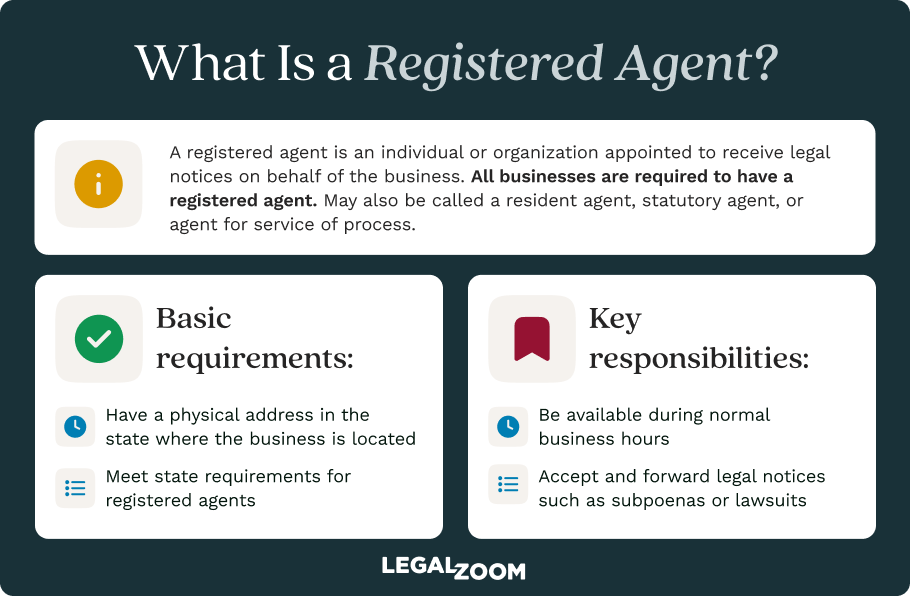The best part of starting a new business is seeing your vision finally come to life. However, you first need to get through a lot of paperwork that can be hard to differentiate. Articles of incorporation make up a set of legal documents that establish a corporation as its own separate legal entity. You file articles of incorporation with the Secretary of State (SOS) or similar government agency in the state where you’ve decided to form your business.
This step is necessary to form a corporation, which offers enhanced credibility to your business and limited liability protection for its owners. Learn how the process works and how articles differ from other formation documents.
Key takeaways
- Purpose: Articles of incorporation provide important information about your corporation, including its name and contact information, to the state to establish its legal existence.
- Structure: It’s essentially a form that defines your business' basic structure and purpose, and outlines key details such as shares, directors, intended business activities and scope of its operations.
- Public record: Generally, once you file, the articles become a matter of public record. That means anyone can access this basic information about your business.
- Registration: You file articles of incorporation with the Secretary of State (or a similar business-filing agency) in the state where you form your corporation.
- State-specific requirements: Basic requirements, such as filing procedures, fees, and required information, vary by state according to local laws.
- Corporation-specific: Articles are different from corporate bylaws, which are internal documents that govern a corporation's management and operations.

What is in the articles of incorporation form?
Every state has a form for the articles of incorporation. You can find your state’s form on the website of the agency that handles business filings. Although each state's articles of incorporation form is different, the required information typically includes the following.
- The corporation’s name and principal office address.
- Its purpose, which can often be a broad, general business purpose.
- The duration of the corporation, if you don’t intend for it to exist perpetually.
- The name and address of your registered agent and registered office. A registered agent is someone who receives legal notices and other official documents on behalf of a corporation.
- The names and addresses of the members of the corporation’s initial board of directors. Note that not all states require you to provide this information.
- The number and type of shares of stock the corporation is authorized to issue. The number and type of shares may be used to calculate taxes and fees.
- The names and addresses of the incorporators. An “incorporator” is a person who signs and files the articles of incorporation. Anyone can fill this role, they don’t have to be an officer, director, or shareholder of the corporation.
- The incorporators’ signatures.
How corporate structure impacts articles of incorporation
While there are other structures you can adopt to form a business or nonprofit, incorporating often enhances credibility with investors and lenders. This can be especially helpful when seeking funds to grow your business.
- Types of corporations. If you’re forming a nonprofit corporation, there may be a separate nonprofit articles of incorporation form. Foreign corporations typically file a “certificate of authority” or similar document rather than articles of incorporation.
- Number and classes of shares authorized. The number of shares authorized points to the maximum number of shares of stock that your corporation will issue. Shares have different class types, such as common or preferred, that differ in voting rights and other privileges.
- Roles and responsibilities of directors and officers. Directors provide strategic oversight and establish company policies, while officers manage day-to-day operations. Not all states require you to list the names and addresses of individuals in these roles.
Articles of incorporation vs. corporate bylaws
Most states also require corporations to have corporate bylaws. Bylaws describe the way the corporation will run, including the rights and responsibilities of the officers, directors, and shareholders. Bylaws are an internal document that should be kept with your other corporate records. Unlike articles of incorporation, you don’t file them with the state.
How to file articles of incorporation
You file articles of incorporation with your state’s business filing agency. In most states, that’s the Secretary of State, but some states have a different business filing agency. Exactly how you file articles of incorporation will differ slightly by state, but most states share a general process.
Step 1: Review your state’s requirements
State laws govern what you need to include in your articles of incorporation. Your state’s business filing agency usually provides a list of these rules on their website. In some cases, the instructions section of the articles will also address state requirements.
This is particularly important when choosing a name for your business. If you submit your articles with a business name that doesn’t align with state laws, the SOS will reject your application. Start by conducting a business entity search to ensure no other company exists under your desired business name.
Step 2: Choose a registered agent
Most states require corporations to appoint a registered agent to receive official communications on their behalf. Think of them as a liaison between your business and government bodies. They help make sure you don’t miss important compliance deadlines that could negatively impact your business’ legal standing.
Generally, you or another individual can act as your registered agent. However, it’s also common to hire a registered agent service, like LegalZoom, to handle the role for you. Some states require you and your registered agent to have a signed agreement.

Step 3: Download the form or create an online account
Once you have a business name and registered agent, you’re ready to file the paperwork. Go to your SOS or similar agency’s website and download the paper form, or make an account if they offer an online option. Make sure to select the correct form for your corporate structure. There are different forms for profit vs. nonprofit corporations as well as domestic vs. foreign corporations.
Step 4: Submit your form and pay the filing fee
After you’ve answered the required questions, submit your application to register your business. All states require you to pay a filing fee to submit your paperwork but the cost of fees differ. You’ll receive a certificate of formation from the state once the corporation has been approved.
State-specific requirements
Each state has its own requirements, fees, and procedures to file articles of incorporation. Here are a few examples:
- California. CA’s Secretary of State charges all for-profit corporations $100 to file articles or incorporation and charges all nonprofits $30. The SOS also offers different forms based on the type of organization. For example, common stock vs. professional corporation or mutual benefit vs. public benefit nonprofit.
- New York. NY’s Department of State charges a $125 filing fee to submit a for-profit certificate of incorporation, while the filing fee for a nonprofit is $75. Their form only addresses the basic legal requirements to form a corporation and offers a default number of shares. If you want a more curated document, the DOS recommends that you draft one with attorney guidance
- Texas. The Texas Secretary of State charges $300 to file a certificate of formation as a for-profit corporation and $25 to file as a nonprofit. While optional in some other states, Texas requires you to name at least one director to register a corporation. The director doesn’t need to be a Texas resident.
How to get a copy of filed articles
Once you form a corporation, your articles of incorporation become a matter of public record. You can obtain a copy of your or any other business’ articles as long as you know the corporation's legal name and, in some states, its state-assigned ID number.
Here are several ways that you can obtain a copy of a corporation's articles of incorporation.
- Online. In many states, business filings such as articles of incorporation are accessible to view online. You can usually obtain a copy for free by searching for the articles, and downloading them to your computer.
- In person. If you need a certified copy or can’t access them online, you can obtain a copy of a corporation's articles of incorporation by going to the Secretary of State's office in person. Often, you’ll receive the copy during your visit, or can put in a rush request. Certified copies generally have a small fee.
- By phone. In most states, you can submit a request for articles of incorporation by phone. You should be able to find the number to call in the relevant section of the Secretary of State's website. As with requests made in person, there may be a small fee for the copy.
- By mail. Some states provide a form you can download to request a copy of the articles of incorporation. In this case, download the form, fill it out, and send it in, along with the appropriate fee.
Certified copies of articles of incorporation
A certified copy of articles of incorporation is an official copy of the document. To be a certified copy, the document will have something affixed to it that attests to its authenticity and accuracy—such as the state's seal or an official signature.
You’ll receive a certified copy of your company's articles of incorporation when you make the initial filing, but sometimes, you need to provide a third party with a certified copy. For instance, banks often require a certified copy in order for a corporation to open a bank account or apply for a loan or line of credit.
Articles of incorporation FAQs
How long does it typically take to process articles of incorporation in my state?
How long it takes to process articles of incorporation depends on the state agency’s processing times and the method of filing. If you file a paper application, it could take anywhere from a few business days to several weeks. Online processing times tend to be much faster. An online service that’s familiar with the process can also facilitate the process, speeding things up.
What are the filing fees by state and how can I estimate my total cost?
State filing fees can be as low as $40 or as high as $300. To estimate the total cost of registering your businesses, go to the website of your state’s business filing agency and look at their fee schedule.
Keep in mind that any business licenses that you may need to operate can come with additional costs. Rather than trying to track down each individual required expense, it may be easier to work with a business formation service that charges a fixed rate to do all the heavy lifting for you.
Can I amend my articles of incorporation later, and what’s the process?
Yes, you can always amend your articles of incorporation by going to the website where you incorporated and filing a certificate of amendment or corrections. Generally, you can also file this certificate online or by mail.
Additionally, annual reports also offer an opportunity to adjust any important basic business information that’s changed since filing your articles of incorporation. States generally require you to file an annual or biennial report depending on your business structure.
What happens if the state rejects my initial filing or requests corrections?
Typically, if the state rejects your initial filing, you’ll have to address any errors and refile. This can happen if you apply with a name that another business in the state is already registered under.
Are there expedited filing options or online filing portals in major states?
Yes, almost all states offer expedited filing options for an additional fee. Online filing options are also available in most states.
Jane Haskins, Esq., contributed to this article.


